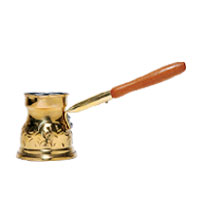Άρθρο του Bruce Kluger στην USA Today Feb. 6, 2008
In the first episode of the new season of The L Word, Showtime's libidinous lesbian soap opera, the character Tasha has a crisis. Black, beautiful and enlisted in the National Guard, she is accused of violating the Pentagon's "don't ask, don't tell" policy, which forbids gay personnel from revealing their sexual orientation, or face discharge.
Rather than ship out to Iraq as planned, Tasha returns home to her surprised lover, Alice. Angry at a government she wants to serve and ashamed at being victimized by this abhorrent policy, Tasha keeps her thoughts to herself and, instead, pushes Alice against the wall, tears off her clothes and ... well, you get the picture.
Only on American TV could a knotty policy issue be upstaged by a really hot sex scene.
In the 15 years since President Clinton approved "don't ask, don't tell," the social stigma often tagged to homosexuality has, in many cases, dropped away like molting feathers. Cultural entertainment has helped fuel this transformation, incorporating gay themes into content in an easier, breezier way.
Will & Grace and Ellen (arguably the godparents of the "gay sitcom") exploded onto TV screens in the mid-'90s, followed soon by Queer Eye for the Straight Guy, a reality show that used gay sensibilities as a hip prism through which to examine fashion trends and romance. The edgier Queer as Folk and The L Word proved to viewers that the trials, trysts and truths of gay relationships weren't all that different from straight ones.
More recently, gay roles have increasingly popped up on the big screen -- such as Steve Carell's hilariously tortured Proust scholar in Little Miss Sunshine -- not so much for an exploration of their sexuality as for what their characters lend to the story.
Yet this significant step forward carries with it a liability: As entertainment executives conscientiously work to bring the gay experience into the mainstream in a non-political way, they also run the risk of neglecting the real-life struggles gays continue to face.
In January alone, courtrooms nationwide were buzzing with cases concerning basic civil rights protection for gays and lesbians. Gay marriage -- a successful wedge issue in the 2004 elections -- has become a non-issue in 2008, an ironic defeat for gay activists left staring at constitutional amendments banning same-sex wedlock in 26 states. And, yes, "don't ask, don't tell" continues to inflame defenders of free speech everywhere -- gay and straight alike.
According to a 60 Minutes investigation in December, the policy has resulted in the ouster of more than 12,000 members of the armed forces, even as three-quarters of Americans tell pollsters that openly gay men and women should be allowed to serve.
Despite such overwhelming numbers, the presidential candidates have barely touched on the subject, focusing instead on such poll-tested topics as the economy and the war in Iraq. (No surprise there. Why tackle a "fringe issue" when there are masses to rally?)
Which is why, libidinous eye candy notwithstanding, it is heartening to see The L Word march up to "don't ask, don't tell" in this season's storyline. Like other TV fare that zooms in on real-life injustices, it is exercising its conscience.
"I believe that Americans really do care about 'don't ask, don't tell,' even if it's not at the top of their candidate issues checklists," the series' creator and executive producer, Ilene Chaiken, told me by e-mail. "We went with the storyline because the subject touches on gay issues in the broadest sense -- issues of equality and discrimination."
The Super Tuesday turnout reaffirms that the USA is once again ready for a national conversation. Let's just hope that the discussion includes gay citizens, too. It would be nice to see Tasha, among others, live happily ever after.
Εγγραφή σε:
Σχόλια ανάρτησης (Atom)

Δεν υπάρχουν σχόλια:
Δημοσίευση σχολίου